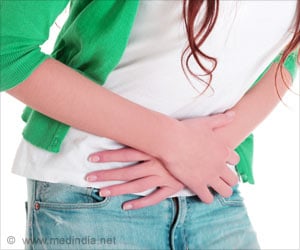A nationwide poll revealed why parents may not seek professional help for stomach pain and the common causes and remedies for it.
- One in six parents report their child experiencing stomach aches at least once a month, but not all seek expert assistance or recognize potential major illness symptoms
- Two in five parents with children experiencing monthly abdominal pain have not consulted a doctor, raising concerns about missed diagnoses and appropriate relief methods
- Parents often attribute stomach pain to digestion or food, while stress and anxiety are also identified as possible causes, emphasizing the importance of emotional well-being
“Our poll suggests that despite benefits of seeking professional help, parents may not always consult with a doctor when determining whether belly pain is a sign of something serious and how to relieve it.”
Parental Perspectives on Child Stomach Aches
According to the nationally representative research, which is based on 1,081 replies from parents of children aged three to ten, two in five parents reporting monthly abdominal aches for their child have not explored the issue with a doctor.Some parents report less frequent stomach aches, with roughly a third claiming that their child has it a few times a year and more than half indicating that their child rarely or never complains of tummy difficulties.
Almost three-quarters of parents believe their child's stomach pain is caused by digestion or food, such as gas, indigestion, or constipation, while fewer believe it is caused by a virus or infection.
However, more than a quarter of parents blamed their child's stomach ache on stress and anxiety, or on trying to avoid school or attract attention; this belief was more prevalent among parents of children aged 6-10 than among parents of children aged three to five (34% vs 20%).
Child Stomach Aches Linked to Worry or Anxiety
When parents suspect that their child's stomach ache is caused by worry or anxiety (1✔ ✔Trusted SourceAbdominal pain symptoms are associated with anxiety and depression in young children
Go to source), they typically address the matter by talking with their child about the source of their fear, while others assist them with breathing or relaxation exercises or seek to distract them. 16% of parents let their child miss school or other activities because they are concerned.
“This situation warrants parental attention as it may be a signal of important emotional health concerns for the child,” Woolford said. “Parents should give children a safe space to express their feelings and concerns and help them identify potential stressors, such as school-related pressures, family issues or social challenges.”
Considerations when Offering Over-the-Counter Treatments for Child Stomach Pain
When their child has stomach pain, nearly a third of parents are extremely likely to offer an over-the-counter treatment, such as probiotics, medicine for an upset stomach, painkillers, or stool softeners. Woolford warns that while some products may alleviate the child's discomfort, others may be harmful.Bismuth, for example, is an active element in certain upset stomach treatments that decreases gut motility (2✔ ✔Trusted Source
Bismuth Subsalicylate
Go to source). While this may help to decrease the duration of diarrhea, she warns that it may also slow the recovery process from a viral infection and cause constipation in youngsters.
“Parents will naturally want to help alleviate their child’s pain but they should understand the pros and cons of different remedies to make sure medicine makes it better and not worse,” Woolford said.
Parental Assessment and Red Flags for Child Stomach Pain
Parents questioned utilize a variety of methods to determine the reason for stomach discomfort, with the majority having the child describe it while less than half look to see if the child can continue with typical activities, has a temperature, or describes pain relief from shifting positions. A smaller group probes the stomach to see where it pains.The majority of parents (84%) said they would contact their child's doctor or seek emergency care if their child's belly pain included blood in the stool, while about 65% would call if the child felt a "sharp" pain like a knife, if the pain lasted more than six hours (64%) or if the belly was swollen (63%) or hard (49%).
“In some cases, abdominal pain is an important sign of more serious problems such as appendicitis, bowel obstructions, urinary tract infections and for boys, testicular problems such as hernias,” Woolford said. “Many parents polled weren’t confident they could recognize these situations. If a child is experiencing severe, frequent or disruptive pain, it’s always best to err on the side of caution and call the doctor.”
References:
- Abdominal pain symptoms are associated with anxiety and depression in young children - (https://pubmed.ncbi.nlm.nih.gov/26194632/)
- Bismuth Subsalicylate - (https://www.ncbi.nlm.nih.gov/books/NBK560697/)














